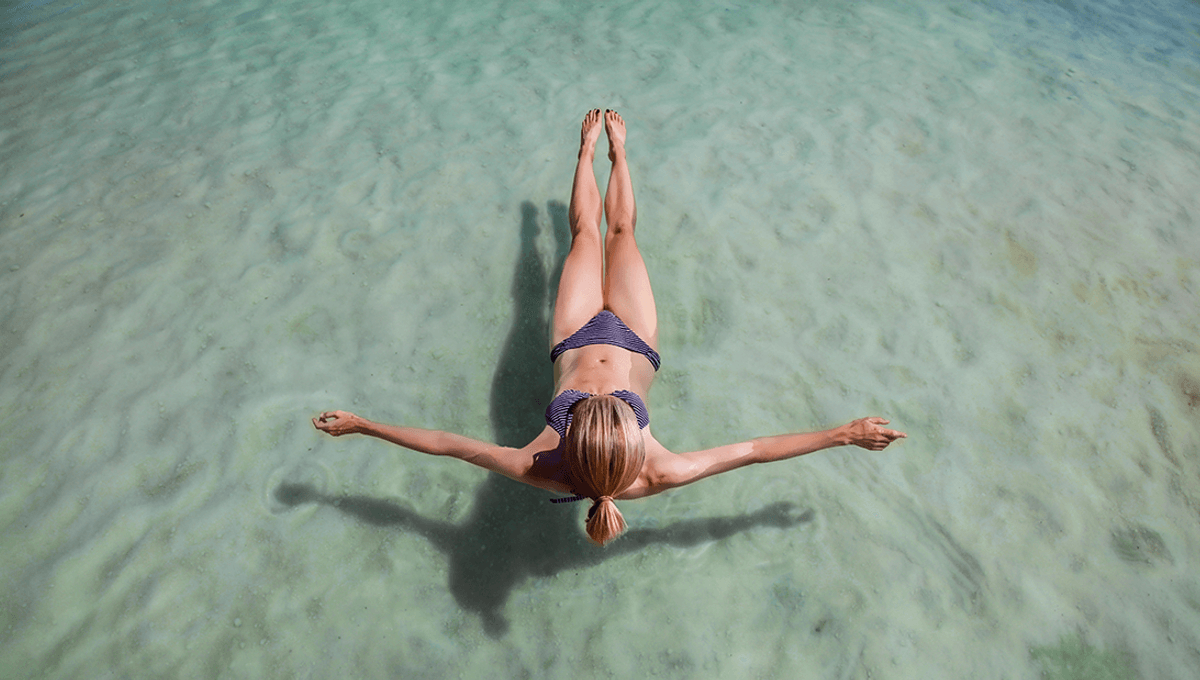
One such question, asked every now and then, is why humans float more easily in saltwater. There are a few places in the world where this is especially apparent, for example in the Dead Sea, or in the waters of oases in Siwa, Egypt.
For the answer to why it’s easier to float in salty water, we need to know a little bit about density and buoyancy. You may have been taught the answer in school, but there’s no shame in forgetting and having a little refresher. Fortunately, it’s relatively easy to wrap your head around.
Buoyancy is an upward force in a fluid (any flowing substance, including air) exerted on all bodies within it. The force comes from the pressure within the fluid being greater the further down in the fluid you go. The pressure on the bottom of an object within the fluid is higher than at its top, causing the upward force. The Archimedes principle states that a body submerged or partially submerged in a fluid is acted on by the buoyant force in a magnitude equal to the weight of the fluid it displaces.
If the buoyant force of a fluid is greater than the downward force (its mass times the gravitational field strength) of an object placed within it, the object will float. But objects that are more dense than water (at the surface) will sink until the forces are equalized. When you or Archimedes get into a bathtub and allow yourself to sink down, the water level rises.
Humans do float in freshwater, as we are slightly less dense than the liquid. That’s not a weird coincidence, but due to the fact that around 60 percent of our bodies is water, though that percentage does vary throughout your life, and from person to person. As well as this, factors like how full your lungs are will affect your buoyancy.
“According to Dr. Jeffrey Utz, Neuroscience, pediatrics, Allegheny University, different people have different percentages of their bodies made up of water,” the US Geological Survey explains.
“Babies have the most, being born at about 78 percent. By one year of age, that amount drops to about 65 percent. In adult men, about 60 percent of their bodies are water. However, fat tissue does not have as much water as lean tissue. In adult women, fat makes up more of the body than men, so they have about 55 percent of their bodies made of water.”
When you put salt into water, it dissolves.
“At the molecular level, salt dissolves in water due to electrical charges and due to the fact that both water and salt compounds are polar, with positive and negative charges on opposite sides in the molecule. The bonds in salt compounds are called ionic because they both have an electrical charge—the chloride ion is negatively charged and the sodium ion is positively charged,” the US Geological Survey explains.
“Likewise, a water molecule is ionic in nature, but the bond is called covalent, with two hydrogen atoms both situating themselves with their positive charge on one side of the oxygen atom, which has a negative charge. When salt is mixed with water, the salt dissolves because the covalent bonds of water are stronger than the ionic bonds in the salt molecules.”
But as for why it is easier to float in saltwater, the answer is pretty simple. It increases the density of the water, and the upward buoyant force acting upon you.
“The Dead Sea is a terminal hypersaline lake (salinity ~277 g/kg) with extremely high density (~1240 kg/m3 at 23°C),” a study on the topic of salinity explains. The density of pure water is around 1000 kg/m³, and with this extra density it is (virtually) impossible to sink in the Dead Sea.
Source Link: The Place On Earth Where It Is "Impossible" To Sink, Or Why You Float More Easily In Salty Water